Corporate tax cut: Berger, Marico, United Power may miss benefit

The government has proposed a 2.5 percentage point cut in corporate tax rates for the listed companies in the national budget unveiled for the next fiscal year in a bid to develop the stock market and attract investments.
This brings down the corporate tax rate to 20 per cent from 22.5 per cent for the publicly-traded firms that have issued shares worth more than 10 per cent of their paid-up capital through initial public offerings (IPOs).
For the listed companies that have offloaded equities worth 10 per cent or fewer, the rate has been kept unchanged at 22.5 per cent.
However, the listed companies, whether shares equivalent to more than 10 per cent of their paid-up capital are offloaded or not, must carry out all receipts and incomes as well as all expenses and investments of more than Tk 12 lakh through bank transfer to qualify for the 2.5 percentage point cut in the corporate tax rate.
Industry people have welcomed the budgetary proposal.
"The tax rate cut for the listed companies will have a positive impact on the market," said Mir Ariful Islam, managing director of Sandhani Life Insurance Asset Management Company.
Mohammad Emran Hasan, chief executive officer of Shanta Asset Management, said the reduction in the corporate tax would directly raise the net profits of the listed companies.
However, Berger Paints, United Power Generation and Marico Bangladesh, are likely to miss out on the benefit since they have offloaded 10 per cent or fewer shares.
Berger Paints has offloaded 5 per cent shares while it is 10 per cent for Marico and United Power Generation, data from the Dhaka Stock Exchange showed.
"If the three companies offload more shares to qualify for the tax benefit, it will be good for the stock market," Islam added.
A top official of the National Board of Revenue (NBR), preferring anonymity, said some companies enjoy huge tax benefits by offloading a meagre number of shares, prompting the revenue administration to take the latest move.
"The firms that have offloaded 10 per cent or fewer shares will be able to avoid paying a higher amount of tax if they offload more shares to the public."
The NBR move came nearly a year after the Bangladesh Securities and Exchange Commission (BSEC) asked listed companies to ensure at least 10 per cent of their shares are available for general investors in the stock market.
The instruction came after the regulator included a new provision in the public issue rules in September 2021, making it mandatory for the companies to offload at least 10 per cent of their holdings.
Listed firms have been suggested to offload a maximum of 1 per cent of the required amount of shares every month and reach the target within a year.
The corporate tax rate for the non-publicly traded company has been slashed to 27.5 per cent from 30 per cent currently. However, the companies will have to comply with the bank transfer rule to benefit from the cut.
Industry people say if the government widens the tax gap between listed and non-listed companies, it will act as an incentive for the non-listed companies to go public.
Khandker Abu Jafar Sadique, company secretary of Berger Paints Bangladesh, told The Daily Star that the paint-maker had already taken the step to offload more than 5 per cent shares by September.
"The sponsors who need to offload shares are positive about increased participation of the general public."
A senior official of Marico Bangladesh says it would examine the issue before taking any decision.
United Power could not be reached for comments.
Although Walton Hi-tech Industries has offloaded the lowest percentage of share, or 0.97 per cent, among all the listed companies in Bangladesh, the electronics behemoth would not be impacted by the new tax rate, as it does not have to pay any such tax since it is enjoying the tax holiday.
As a hi-tech park, Walton has been exempted from paying any corporate tax from the current fiscal year and it would continue for another two years. It will pay a reduced rate for the next seven years.
Still, the company is in the process of offloading up to a 10 per cent share in order to comply with the BSEC's instruction, said Md Rafiqul Islam, company secretary of Walton Hi-tech Industries.
Tax experts have praised the decision aimed at shifting transactions to the banking channel since it would cut the use of cash. They are, however, raised questions about whether it would be possible for companies to collect all sales proceeds using the banking channel.
Snehasish Barua, a partner at Snehasish Mahmud & Co, a chartered accountancy firm, says some big companies collect demand drafts or pay orders and then deliver their goods. For them, it is very easy to comply.
But most companies collect cash from customers whenever they can, depending on the credit period.
"Sometimes, it is difficult to recover money, let alone bring it through the banking channel," said Barua.
One might think about bringing the money using the mobile financial service system. But it comes with a cost, which is about 1 per cent.
So, businesses might not be ready to spend unless the transaction cost is reduced to a substantially low level, according to Barua.
He thinks stringent conditions should be liberalised.
For example, 50 per cent of the total sales and other receipts might be transacted through the banking channel and it could be reduced to 10 per cent or 15 per cent in the next three to four years, he said.
In his budget proposal, Finance Minister AHM Mustafa Kamal, however, has proposed to discontinue the scope to invest untaxed incomes in the stock market.
"The opportunity had been available for years but it did not attract a huge fund injection in the market. So, it has been the right decision not to continue it," Hasan said.
Banking, insurance, financial institutions, tobacco, and telecommunication sectors, however, would not see any benefit increase since their corporate tax rates have remained unchanged.

 For all latest news, follow The Daily Star's Google News channel.
For all latest news, follow The Daily Star's Google News channel. 

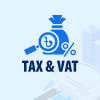

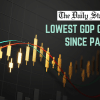
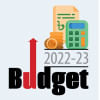
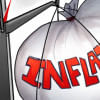

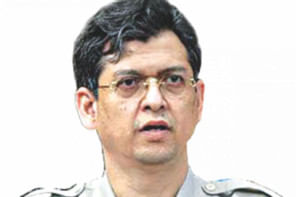
Comments